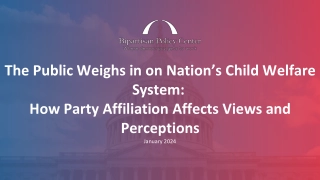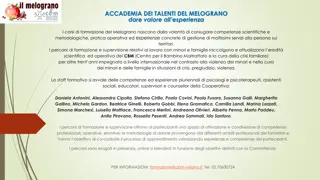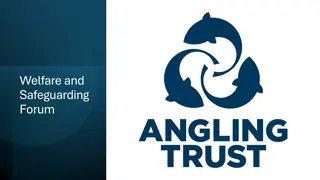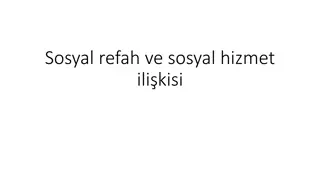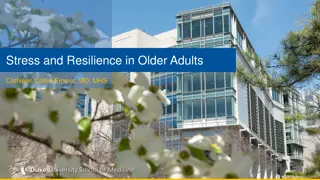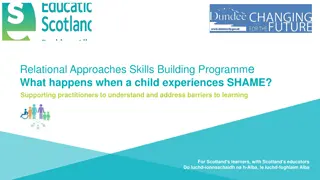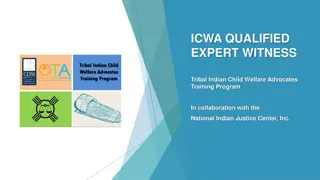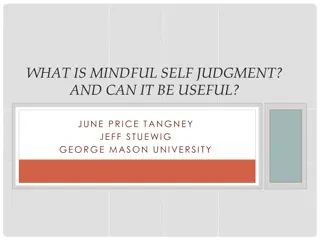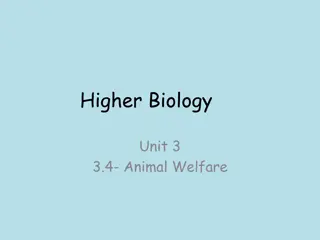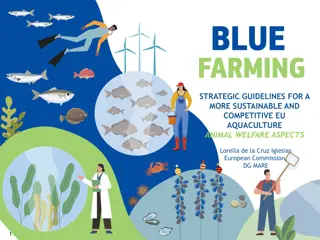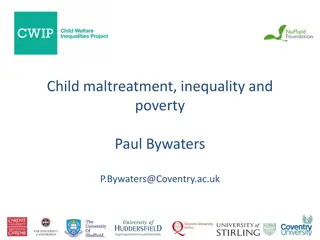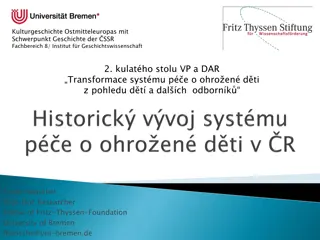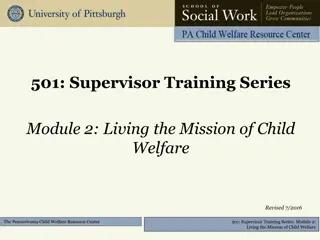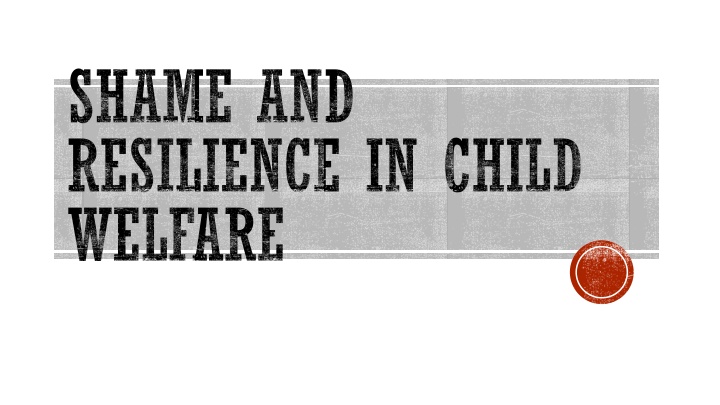
Shame and Building Resilience in Child Welfare
Explore the concepts of shame and resilience in child welfare, along with practical strategies to identify and address shame, ultimately fostering healthier outcomes for children and families in need.
Download Presentation

Please find below an Image/Link to download the presentation.
The content on the website is provided AS IS for your information and personal use only. It may not be sold, licensed, or shared on other websites without obtaining consent from the author. If you encounter any issues during the download, it is possible that the publisher has removed the file from their server.
You are allowed to download the files provided on this website for personal or commercial use, subject to the condition that they are used lawfully. All files are the property of their respective owners.
The content on the website is provided AS IS for your information and personal use only. It may not be sold, licensed, or shared on other websites without obtaining consent from the author.
E N D
Presentation Transcript
SHAME AND RESILIENCE IN CHILD WELFARE
WHO ARE WE Heather Cantamessa-Parents for Parents Program Coordinator Ambrosia Eberhardt-Parents for Parents Ally Lead Vanessa Matthews-Division of Children and Families Services Tarena Coleman-Office of Public Defense
PRESENTATION OUTLINE: Identify shame Reflection What shame looks like I'm not good enough reaction What not to do(how to avoid shame and shaming interactions) When I am not doing well What you need to build shame resilience I can stop self-defeating (shaming) thoughts/actions and do better, what we need to hear Questions
SOME OF THE THINGS TO IDENTIFY SHAME We all have it. We re all afraid to talk about shame. Shame is universal and one of the most primitive human emotions that we experience. The less we talk about shame, the more control it has over our lives. The only people who don t experience shame lack the capacity for empathy and human connection.
WHAT SHAME LOOKS LIKE Shame loses power when it is spoken How your shameful thoughts turn to action/inaction (aggressive/disappearing/power and control, etc.) Shame is the intensely painful feeling or experience of believing that we are flawed and therefore unworthy of love and belonging The I m not good enough reaction what does it look like in you? In others? Shame is all about fear
SHAME NEEDS THREE THINGS TO GROW OUT OF CONTROL IN OUR LIVES Silence Shame loses power when its spoken Secrecy Don t talk, don t tell. Judgement We live in a blame culture we want to know whose fault it is and how they are going to pay
AVOIDING SHAME We live in a blame culture we want to know whose fault it is and how they re going to pay. -When I m not (past or present) doing well, this is what it looks/ed like (who I am, who I was, who others were being that did not help, etc.) The key is to separate people from their behaviors to address what they re doing, not who they are -I realized I wouldn t do my part well if I continued with this behavior/thoughts, etc
BUILDING SHAME RESILIENCE If we want to fully experience love and belonging, we must believe that we are worthy of love and belonging I began to do well when I began to think/feel/act with these thought processes Others helped me feel like I could do it by The greatest challenge for most of us is believing that we are worthy now, right this minute How you/I can stop self-defeating (shaming) thoughts/actions and do better, what we need to hear.
ONE OF THE WAYS TO BUILD SHAME RESILIENCE VIDEO
WHY BUILDING SHAME RESILIENCE IS KEY TO OUR WORK: Relatively new research into shame shows us that there are ways to identify, name and reduce the impact shame has on families and parents that CPS comes into contact with. Working on building shame resilience allows families to talk about what gets in their way of getting the real work done to put their families back together again. The How-to will not work without talking about what gets in the way and this panel sums up the real (research-based) things that get in the way of progress and success from both families and the child protection/welfare workers. Learn how to help families be more successful, engage families in real dialog and work toward common goals that protect children and preserve families.
ONLY WHEN WE ARE BRAVE ENOUGH TO EXPLORE THE DARKNESS WILL WE DISCOVER THE INFINITE POWER OF OUR LIGHT. BRENE BROWN Questions?????

